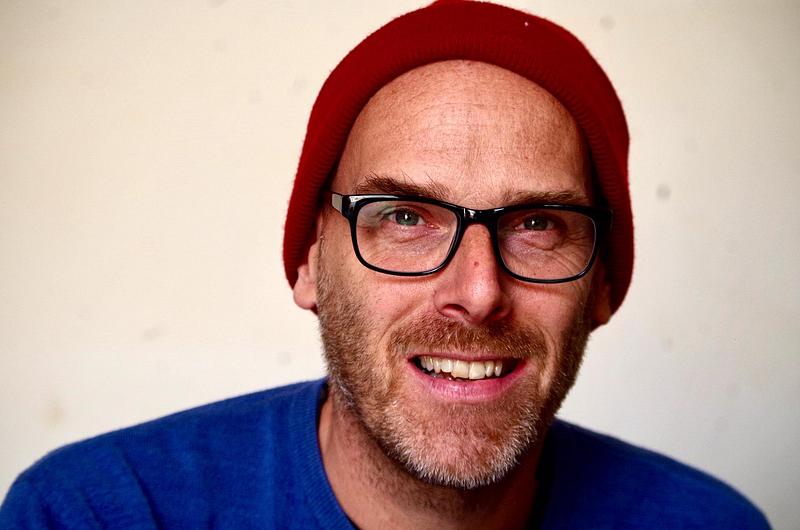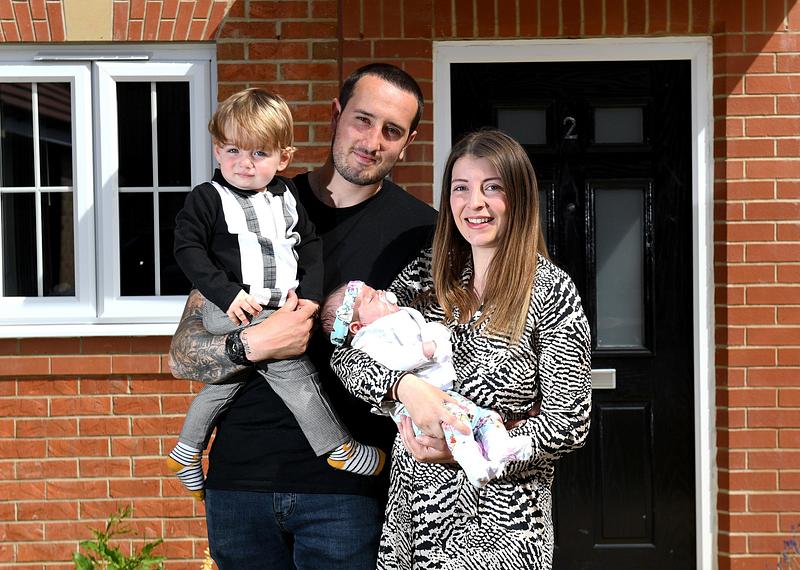.JPG)
"This is a time for the whole system to up its game"
The Children’s Commissioner for England has called on the NHS to “up its game” to support the new parents in Yorkshire bringing babies into the world without state and family support during lockdown.
Medical and child experts have warned of the emotional and mental health worries new parents face as they tackle major uncertainty during the coronavirus pandemic.
An estimated 7,500 babies have been born in Yorkshire during full lockdown measures and 76,000 nationwide, with parents denied the usual family and state support networks because of lockdown restrictions and most health visitor "visits" carried out remotely.
As part of a special report in The Yorkshire Post, parents from around the region have spoken of the emotional anguish they felt due to the lack of support before, during and after the birth because of the strict measures introduced by hospitals.
One mother said the three days she spent alone before giving birth to her first child, due to her partner only being allowed to stay during 'active labour' and five hours after the birth, were among the loneliest of her life.
A report from The Children’s Commissioner for England has called for policymakers to put families with young children, and especially those with newborns, at the heart of coronavirus planning.
West Yorkshire-born Anne Longfield, the Children's Commissioner for England, said the report showed “concerns about the long term effects for the mental health and wellbeing of both mothers and their children.”
She told The Yorkshire Post: “In the case of new mothers and their babies what is meant to be a 'golden life moment' has just been made that much harder, in these circumstances.”
Mrs Longfield said it was “vital the Government response has to be getting support to those who badly need it, finding new ways of working that don’t leave them isolated, and going the extra mile for those who were isolated and on whom it’s taken its toll.
“This is a time for the whole system to up its game, not to take a step back.”
Research by her office shows how support services provided by health visitors and GPs are not readily accessible, with many taking place via phone and video calls or not at all.
The report shows up to 50 per cent of health visitors in some areas of England were redeployed to other parts of the NHS as it grappled to fight the pandemic.
There are concerns many babies may have missed their developmental health checks, due in the first few weeks of life to pick up urgent developmental needs.
Dr Cheryll Adams, executive director from the Institute of Health Visiting said in some areas, “the six-week GP baby check hasn't been available or parents haven't wanted to attend it due to a potential risk of infection.”
For first-time mother Lucy Waterworth, who gave birth to son Tommy at 8.31am on 7 April, after an induced labour, at Scarborough Hospital, where the midwives wore PPE, she will have waited eight weeks when she goes for her first GP baby check, after only one socially-distanced visit from a health visitor to weigh her baby.
The 30-year-old said: "There has been a lack of aftercare. I am also on my own looking after him, because there isn’t the usual family support you would get.” Her partner Andy Roebuck, 27, who works in construction, returned to full time after two weeks paternity leave.
"It has been a tough time,” she said. “You have to find your feet very quickly because you don't have a choice.”
Mrs Longfield said it was “vital the Government response has to be getting support to those who badly need it, finding new ways of working that don’t leave them isolated, and going the extra mile for those who were isolated and on whom it’s taken its toll.
“This is a time for the whole system to up its game, not to take a step back.”
A Department of Health and Social Care spokesperson said: “We are absolutely committed to supporting everyone’s mental wellbeing, especially during this unprecedented period.
“New parents are understandably under a lot of pressure and can continue to access mental health services, including online, while we have also released new tailored guidance to help people deal with this outbreak through practical tips and advice”.
"New mothers are more isolated than they would have expected"
It is a life-changing moment that for most brings with it untold happiness while embarking on a new chapter.
However, new and expectant parents across the Yorkshire region have spoken of the emotional turmoil they have endured as the nation continues to face huge uncertainty from the coronavirus outbreak
The Yorkshire Post analysis of Office for National Statistics (ONS) data shows an estimated 7,500 babies have been born across Yorkshire during full lockdown measures in England.
“Having a baby is one of the biggest life changes anyone can experience and during this pandemic new mothers are more isolated than they would have expected to be,” said Clare Livingstone, the Professional Policy Advisor at the Royal College of Midwives.
From giving birth to twins in lockdown to an expectant mother worried about potential complications during birth, parents across Yorkshire share their experiences of having babies during the coronavirus lockdown.
Serafina and Linus
For mother-of-three Chloe Hindmarsh and her partner, Neil Gouldson, having the support of family has been even more vital during the months that the nation has faced the coronavirus crisis.
The couple welcomed twins into the world on the Jessop Wing at the Royal Hallamshire Hospital, in Sheffield, on May 6.
And having the family support from grandmother, Elizabeth Hindmarsh, has been a lifeline during challenging times.
The 72-year-old has lived permanently with the pair and five-year-old grandson, Freddie, for a year in Malin Bridge, and during the lockdown restrictions has been able to provide much needed support.
Speaking to The Yorkshire Post, Miss Hindmarsh said: “We’re not entirely sure how we would have coped without her, to be honest.”
During the birth of Serafina and Linus by a caesarian operation last month, Mr Gouldson, 40, was only allowed to be present during the ‘active labour’ and spend two hours after with them before they were separated.
He returned to hospital two days later to take his family home.
“It felt very strange, because you were just waiting for that phone call to say I could come back in,” Mr Gouldson said.
Miss Hindmarsh, a lecturer in teacher education at Sheffield Hallam University, added: “He really felt he was missing out. He just wanted to be there to support me for the whole time. “For me, from very early on I bonded with other mums in the same position who were on my ward. We were all in the same boat.
“No-one had any visitors, so we didn’t draw our curtains and chatted to each other”.
The new pressure that the arrival of two babies has brought on the couples finances is a real concern for the young family.
Miss Hindmarsh, 36, who is also a trustee for Ruskin Mill Trust, is currently on maternity leave while self employed Mr Gouldston, who owns Kelham Arcade based record shop Black Beacon Sound, has been unable to qualify for the Government’s furlough scheme. Despite taking the mortgage payment holiday, which has allowed the couple to stop their monthly payments for up to three months, there are concerns for the future.
Miss Hindmarsh said: “I’m worried as my partner isn’t working so it is an income that we have lost.
“We’ve taken advantage of the mortgage holiday for three months so that has helped. We do worry about what that will increase to in the future”.
Mr Goulston added: “We have looked at government loans available, but you can’t really straddle yourself with more debt, when you don’t know when your income is going to recover again.
“We’ve been fortunate that lots of friends have donated clothes and other things to us. “We’ve also gone for reusable nappies, along with reusable wipes, so that is helping to reduce costs”.
There are concerns from the Royal College of Paediatrics and Child Health and the Institute for Health Visitors about the health needs of babies which might be going unnoticed during lock down.
To combat this Miss Hindmarsh said she had embraced technology including telephone calls from her breast feeding support worker and a whatsapp call from her health visitor. She has also “heavily relied” on online support groups including the South Yorkshire Multiple Births Association (SYMBA) and the national Twins Trust organisation.
“I really accessed a lot of online support. For example I’m part of several whatsapp groups and also online parent groups have been a great way to troubleshoot problems that we may be having”.
Despite the challenges during the period of unprecedented uncertainty, including family members not yet having been introduced to the twins, Miss Hindmarsh she had been given the opportunity to create a “special bond” with them.
Mr Gouldson added: “It is very special. The moments we are getting with them now - a lot of people would not ordinarily get. That is what we have to take from it.”
"I don’t want him to be known as a lockdown baby"
In North Yorkshire, the three days first-time mother Lucy Waterworth spent alone, with maternity staff, in Scarborough Hospital, before she gave birth to son Tommy on April 7, after an induced labour, were some of the loneliest of her life.
Her partner Andy Roebuck, 27, who works in the construction industry, was able to stay with her during the ‘active labour’ and five hours after the birth before collecting the pair the next day to return home.
Miss Waterworth, 30, said: “It was really hard. It was lonely, you want your partner and your family there with you. It's a long time to be on your own”.
Since the arrival of the couple’s first child, Mr Roebuck, has returned full-time to his health and safety role, after two weeks paternity leave.
They have received one socially-distanced visit from a health visitor and the lack of aftercare and not being able to access parent family groups in person for support, has been a real concern for the hard-working family.
Miss Waterworth said: “For me Andy is the only support home and he’s out at work. It’s very hard for him.
“I’m also worried how he will integrate with other babies, because we’ve missed out on going to mum and baby classes for instance or mixing in different environments.”
Miss Waterworth, who is currently on maternity leave from her local events management role, said it had been “heartbreaking” not being able to meet Tommy to his grandparents and family in person.
However, she had come up with innovative ways to document his first few months.
“I’ve been taking pictures of family that have come to the window to put in a special photo album for him.
She added: “I don’t want him to be known as a lockdown baby though. To me that is really negative.”
Reflecting on the birth of her first birth Miss Waterworth said she would have “lockdowned with her parents” for extra support.
“It’s beautiful every single day being gifted with a child but it’s very hard.
“I think a lot of new mothers would say they would mix with their family members straight away, as challenging as that might be at times. With a baby they can offer that extra support. She added: “During this time keeping your mental health is very challenging especially for new mothers. I do worry for mothers that are in a vulnerable state.”
In West Yorkshire, after being rushed into theatre at Pinderfields Hospital, Jessica Rowlands, 23, gave birth to her daughter Violet, on April 24 at 5.10pm via a caesarean section.
Her partner, Jack Bruce, 26, had a 20-minute warning to get to the hospital in time.
“I felt very nervous and upset before going into the theatre, thinking what if she comes straight away and then no-body is there with us,” she said.
Access for Mr Bruce was restricted. He was allowed to be there for the C-section and for four hours after with Violet and his partner, before returning the next day to pick the pair up.
“It wasn’t a very nice experience leading up to the birth. I would have preferred to have been there a lot more,” he said.
“It was very fortunate that we live so close to the hospital.”
Like many others, they have not been able to register Violet’s birth.
“I just feel worried with her not being registered - what if she slips through the net,” said Miss Rowlands.
The hardest part of the lockdown for Miss Rowlands is not being able to see her parents.
She said: “That has been awful, that has been the worst thing about it.
“I’m really looking forward to being able to show her off and let everyone have a cuddle”.
Since the arrival of the couple’s second child, Mr Bruce, has returned full-time to work as a police community support officer in Leeds.
They have received one socially-distanced visit from a midwife and the lack of access to parent family groups in person for support, including a local mother and baby group Miss Rowlands went to after the birth of her first child Ezra, has been a challenge.
“I think it is a big problem. After my son’s birth I was part of a local baby group straight away and it offered a lot of support”.
“I really feel worried about what if she is missing out on that same experience”.
She added: “There have been tough days absolutely. I could definitely see how new mothers could spiral. And at the moment it is harder to access those vital services”.
Meanwhile, for expectant mother Lucy Russell, speaking before she gave birth to 7lb 10oz son Lucah John on Saturday at Chesterfield Royal Hospital , said her greatest concern was the lack of support her husband, Jahmel, 33, would be able to provide due to strict restrictions in place.
The 31-year-old ran into complications during the birth of her first son Luell, aged four, when she had to be induced two days early.
She said she “relied heavily” on her husband for emotional support.
“I was really quite poorly and in an immense amount of pain,” she said. “I had quite an ordeal and it was really important to have him there on an emotional level.”
She added: “That is the part that concerns me most about all of this. Anything before or after labour, my husband will need to leave the hospital.
“That is a scary thought, because they're your rock, your comfort blanket."
With support services provided by health visitors and GPs not readily accessible, Mrs Russell has mainly received help via phone calls, including those from a midwife.
The busy mother-of-one has also had to juggle pregnancy during lockdown while also homeschooling her son.
She said: “It has been quite tricky trying to keep a four-year-old engaged throughout this time”.
She added: “My mentality throughout this is that I’m trying to not waste negative energy on something I can’t control. If I went into a negative mindset about this I could imagine that postnatal depression would fall into place relatively easily”.
Miss Russell, who is currently on maternity leave from her dance teacher role, at the Gemini School of Dance company, which she runs with her older sister Jodie Mcrae, in Sheffield, said online innovation, including a virtual baby shower.
The youngest of three siblings, said family video calls had also helped raise her spirits during challenging times.
While excited for the arrival of their new son, the young family have concerns for the future and managing childcare as after two weeks paternity Mr Russell, will return to working full-time from home.
“We cannot wait for him to arrive but giving birth is no easy task and you don’t know how you will be afterwards.
“I do worry if I can’t function as I normally would and after my husband has gone back to work and I have a four-year-old I am trying to homeschool with a brand new baby”.
She added: “It is going to be a challenge, I have no doubt about that”.
"Trauma can follow when they feel they have failed"
Campaigners are warning that new fathers could be at risk of increased trauma levels of isolation and anxiety because of the toll the coronavirus pandemic is taking on their mental health, unless the Government steps into help.
Medical experts have warned that here is an increased need to ensure new fathers, across Yorkshire and the UK, are being given adequate support as the focus is often on new mothers.
New fathers are already twice as likely as other men to have poor mental health, when this worsens both they and their families suffer and long-term consequences can be severe, warned officials from the UK’s think tank, the Fatherhood Institute.
Dr Jeremy Davies, the head of communications at the Fatherhood Institute, told The Yorkshire Post: “Expectant and new fathers see their role as supporting their partner before, during and after the birth. Trauma can follow when they feel they have failed”.
The world’s leading independent ‘think tank’ on fatherhood will be producing research next month about fathers’ and father figures’ experiences during the Covid lockdown.
Their next survey will gather much-needed data on the ways in which fathers are being shut out from maternity care.
The institute said they expect to find increased trauma when fathers have missed the birth or part of a difficult labour; have not been at a scan when their partner has been given bad news; or have felt ill-informed or poorly equipped to support her when healthcare support has ‘gone missing’.
Dr Davies said: “We expect our upcoming research to reveal high levels of isolation and anxiety among new dads, and their babies’ mothers”.
For Neil Gouldson, 40, who welcomed twins into the world, at the Royal Hallamshire Hospital, in Sheffield, with his partner Chloe Hindmarsh, 36, on May 6, he was only allowed to be present during the ‘active labour’ and spend two hours after with them before they were separated.
He returned to hospital two days later to take his family home, and said: “For me it was a bit strange, not really being able to be there that much.”
Mr Gouldson, a self-employed record store owner, said it was also difficult not being able to introduce the twins to his parents.
“There is the dark side of family not being able to see them but we’ve got to look positively at it because if we focus on all the negatives then you could just spiral into some form of depression.”
In West Yorkshire, father-of-two Jack Bruce, 26, said it had been difficult to return to work full-time as a police community officer in Leeds recently, after the birth of his daughter Violet, on 24 April with his partner Jessica Rowlands, 23, at Pinderfields Hospital.
Miss Rowlands is also looking after the couple's one-year-old son Ezra.
Mr Bruce said: “As soon as I leave the house I think - “how is she going to cope.” Ezra is a handful and Violet still hasn’t settled so as soon as I leave they both start crying and I feel terrible”.
While the Fatherhood Institute welcomed the Government’s £5m to mental health charities to fund additional services for people struggling with their mental health as a result of the pandemic, they have called for extra funding to be provided to develop essential online resources and extra support from professionals.
Dr Davies said: “If professionals addressed fathers directly, even if only via Zoom, it would help”.
He added: “If we can find some funding, we’d like to develop some really good online resources.”
_(3)_(1).JPG)
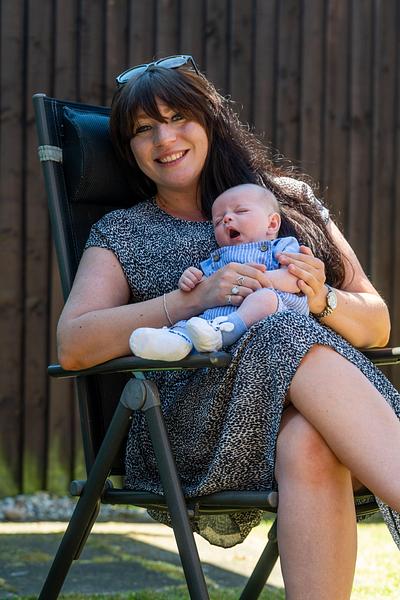
_(1).JPG)
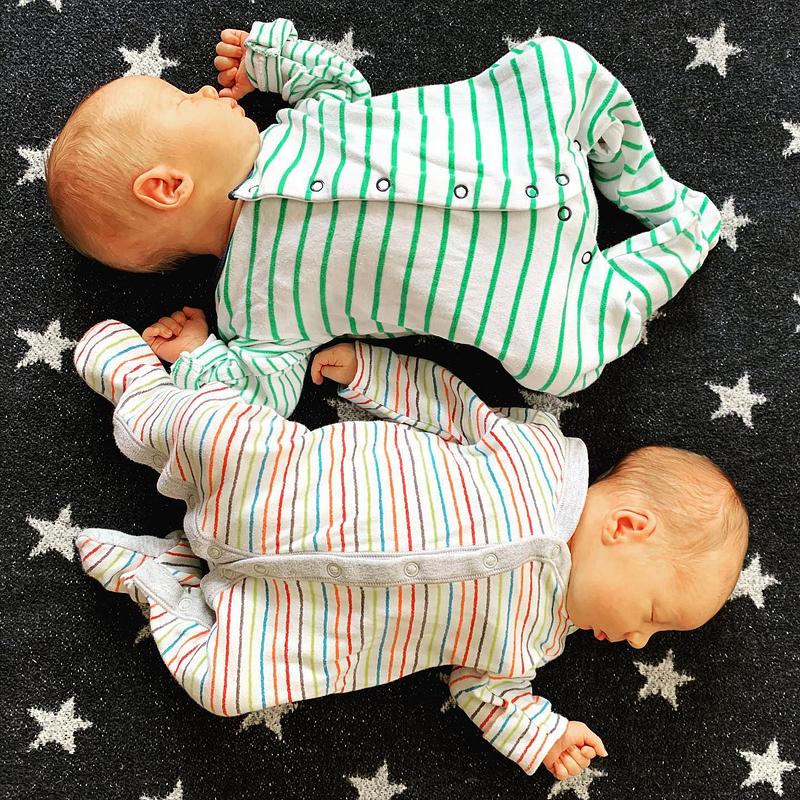
.JPG)
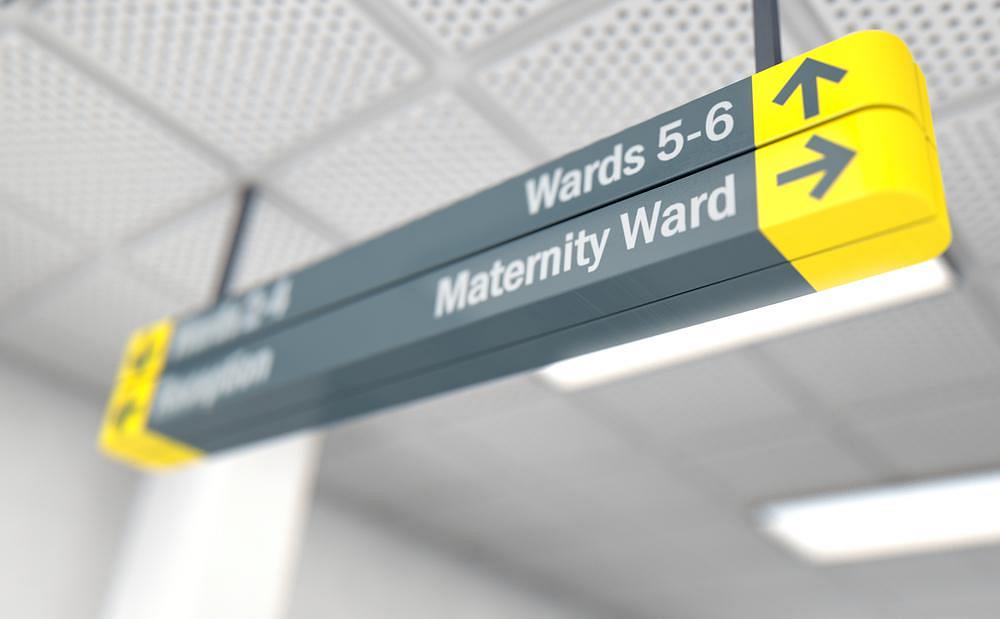
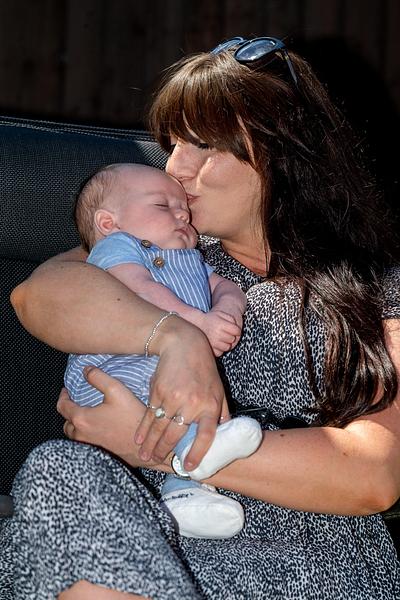
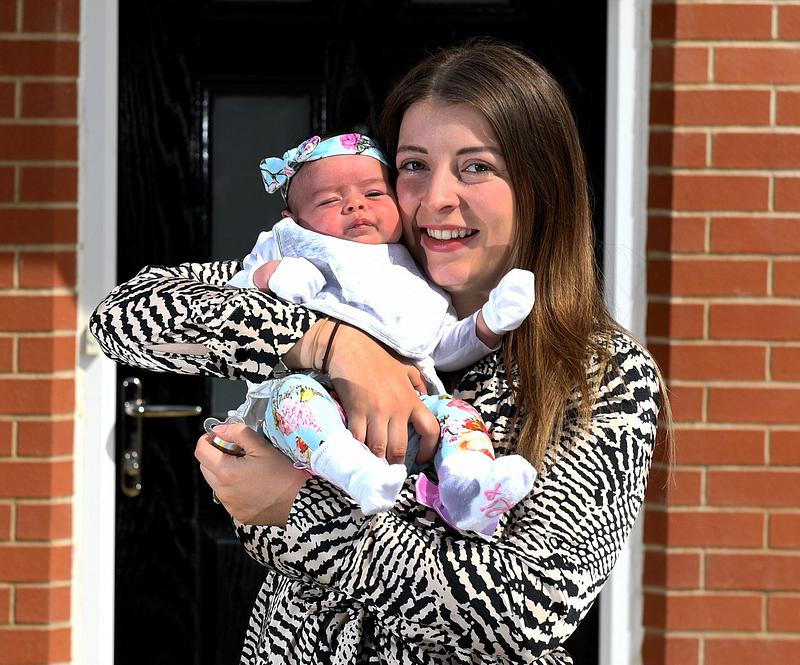
_(2).JPG)
_(1).JPG)
